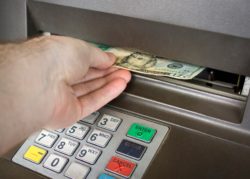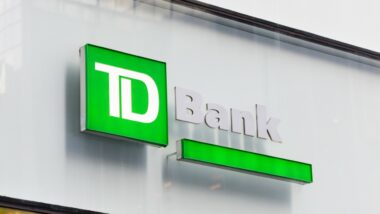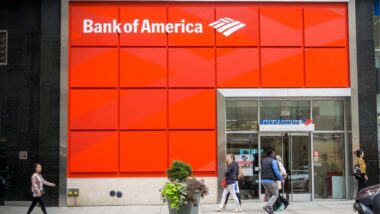Top Class Actions’s website and social media posts use affiliate links. If you make a purchase using such links, we may receive a commission, but it will not result in any additional charges to you. Please review our Affiliate Link Disclosure for more information.

The Washington Post reported that the Consumer Financial Protection Bureau (CFPB) has said the limit on overdraft fees has saved consumers millions of dollars, but the financial industry would like to see the law re-examined.
The Trump administration may find the law needs to remain as it is or may call for amendments, but it may come with a fight as this is happening at a time when the banking industry is under scrutiny by Congress.
Overdraft Opt-in?
Currently, banks and credit unions must receive an affirmative opt-in by the customer before they can charge overdraft fees for ATM and one-time debit card transactions. This limitation is supposed to help customers who might want to buy a $4 coffee, but prefer not to pay a $35 fee for the privilege of going into overdraft status for it. As a result of not opting in to overdraft coverage, the transaction is declined. The customer doesn’t get a coffee, but doesn’t receive a $35 overdraft fee, either.
Financial institutions do not need the customer’s opt-in acknowledgement to charge overdraft fees for checks and ACH transactions.
The CFPB has said that in addition to its role of helping protect consumers, the government entity is assessing how existing banking regulations affect the financial health of small businesses.
Overdraft Laws Don’t Stop Banks from Collecting Big Money
According to the FDIC, banks and credit unions made more than $11.5 billion from overdraft fees last year alone. A report by Raymond James Wealth Management indicates several small banks receive a quarter of their fee income from overdraft charges they pin on customers. Customers have started suing banks for alleged overdraft fee abuses.
The CFPB says most overdraft fees are the result of debit card purchases of $24 or less that are repaid in three days’ time. If a $34 overdraft fee is incurred on a $24 purchase, the result is a fee proportionate to a loan taken out at 17,000 percent.
The CFPB also found that college-sponsored bank accounts make millions of dollars by charging college students maintenance and overdraft fees. The report, which covered the 2016-2017 academic year, was never made public by the Trump administration, but advocacy groups secured a copy through a Freedom of Information Act request.
The CFPB looked at a total of 573 colleges across the U.S. and discovered 1.3 million college students had open, active accounts with the college account providers. Students paid more than $27 million in overdraft and penalty fees over the course of the 2016-2017 academic year.
CFPB noted that 120 colleges said they had been paid to promote certain banks at their schools. Wells Fargo paid more than $2 million to colleges during the 2016-2017 academic year, while PNC paid colleges more than $7.5 million.
According to an analysis by the U.S. PIRG Education Fund and Frontier Group, students paid more than twice the average annual fees ($34.34) to a promoted bank compared to students at schools without college marketing agreements ($15.11).
Any upcoming changes to overdraft laws could affect students and the general public, regardless of where they bank.
If you were charged overdraft fees or NSF fees by your bank or credit union that you believe are improper for any reason, the attorneys who work with Top Class Actions are ready to investigate these fees on your behalf.
Learn more by filling out the form on this page.
This article is not legal advice. It is presented
for informational purposes only.
ATTORNEY ADVERTISING
Top Class Actions is a Proud Member of the American Bar Association
LEGAL INFORMATION IS NOT LEGAL ADVICE
Top Class Actions Legal Statement
©2008 – 2024 Top Class Actions® LLC
Various Trademarks held by their respective owners
This website is not intended for viewing or usage by European Union citizens.
Get Help – It’s Free
Join a Free Bank Overdraft Fee Class Action Lawsuit Investigation
If your bank and credit union has engaged in deceptive overdraft fee practices, you may have a legal claim. Fill out the form on this page now to find out if you qualify!
An attorney will contact you if you qualify to discuss the details of your potential case.
PLEASE NOTE: If you want to participate in this investigation, it is imperative that you reply to the law firm if they call or email you. Failing to do so may result in you not getting signed up as a client or getting you dropped as a client.
In order to properly investigate overdraft fee claims, you may be required to disclose bank statements to overdraft fee attorneys. Please note that any such information will be kept private and confidential.












